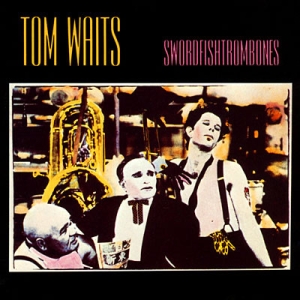
Swordfishtrombones is the eighth studio album by American singer-songwriter Tom Waits, released in 1983 on Island Records. It was the first album that Waits self-produced. Stylistically different from his previous albums, Swordfishtrombones moves away from conventional piano-based songwriting towards unusual instrumentation and a somewhat more abstract and experimental rock approach. The album peaked at No. 164 on the Billboard Pop Albums and 200 albums charts.

Hearts and Bones is the sixth solo studio album by American singer-songwriter Paul Simon. It was released in 1983 by Warner Bros. Records.
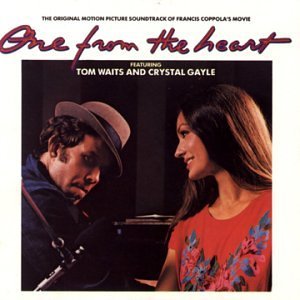
One from the Heart is a soundtrack album of Tom Waits compositions for the Francis Ford Coppola film of the same name. It was recorded from October 1980 to September 1981. It was during this period that Waits met his wife Kathleen Brennan, an employee at the studio where it was recorded. While the film was released in February, the soundtrack album release was delayed until October of 1982 due to a dispute between Columbia Records and Coppola's Zoetrope Studios.

Mule Variations is the thirteenth studio album by American musician Tom Waits, released on April 16, 1999, on the ANTI- label. It was Waits' first studio album in six years, following The Black Rider (1993). The album was backed by an extensive tour in Europe and North America during the summer and autumn of 1999, which was Waits' first proper tour since 1987. Other promotional stops included a solo performance on VH1 Storytellers.

Heartattack and Vine is the seventh studio album by Tom Waits, released on September 9, 1980, and his final album to be released on the Asylum label.

The Heart of Saturday Night is the second studio album by singer and songwriter Tom Waits, released on October 15, 1974, on Asylum Records. The title song was written as a tribute to Jack Kerouac. The album marks the start of a decade-long collaboration between Waits and Bones Howe, who produced and engineered all Waits' recordings until the artist left Asylum.

Nighthawks at the Diner is the third studio album by singer and songwriter Tom Waits, released on October 21, 1975 on Asylum Records. It was recorded over four sessions in July in the Los Angeles Record Plant studio in front of a small invited audience set up to recreate the atmosphere of a jazz club. The album peaked at 164 on the Billboard 200, the highest place Waits had held at the time, and was certified silver by the BPI in 2010. It has received critical acclaim for its successful mood-setting, capturing of the jazz-club atmosphere and characterization.
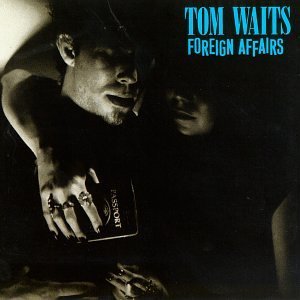
Foreign Affairs is the fifth studio album by singer and songwriter Tom Waits, released on September 13, 1977, on Asylum Records. It was produced by Bones Howe, and featured Bette Midler singing a duet with Waits on "I Never Talk to Strangers".

Tom Petty and the Heartbreakers is the debut studio album album by the American rock band Tom Petty and the Heartbreakers, released on November 9, 1976, by Shelter Records. The album was recorded and mixed at the Shelter Studio in Hollywood, California.
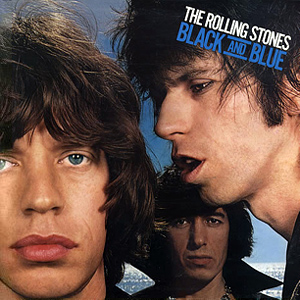
Black and Blue is the thirteenth studio album by the English rock band the Rolling Stones, released on 23 April 1976 by Rolling Stones Records.
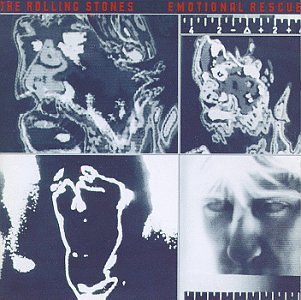
Emotional Rescue is the fifteenth studio album by English rock band the Rolling Stones, released on 23 June 1980 by Rolling Stones Records. Following the success of their previous album, Some Girls, their biggest hit to date, the Rolling Stones returned to the studio in early 1979 to start writing and recording its follow-up. Full-time members Mick Jagger (vocals), Keith Richards (guitar), Ronnie Wood (guitar), Bill Wyman (bass) and Charlie Watts (drums) were joined by frequent collaborators Ian Stewart (keyboards), Nicky Hopkins (keyboards), Bobby Keys (saxophone) and Sugar Blue (harmonica).

The Rolling Stones, Now! is the third American studio album by English rock band The Rolling Stones, released in March 1965 by their initial American distributor, London Records. Although it contains two previously unissued songs and an alternative version, the album mostly consists of songs released earlier in the United Kingdom, as well as the group's recent single in the United States, "Heart of Stone" backed with "What a Shame". Mick Jagger and Keith Richards wrote four of the songs on the album, with the balance composed by American rhythm and blues and rock and roll artists.

Made in the Shade, released in 1975, is the fourth official compilation album by the Rolling Stones, and the first under their Atlantic Records contract. It covers material from Sticky Fingers (1971), Exile on Main St. (1972), Goats Head Soup (1973) and It's Only Rock 'n' Roll (1974).

Broken Blossom is the fourth studio album by American singer Bette Midler, her second album release in 1977 and her fifth on the Atlantic Records label. Just as Midler's three previous studio albums Broken Blossom includes songs from a wide variety of genres, ranging from Edith Piaf's signature tune "La vie en rose", Phil Spector-esque covers of Billy Joel's "Say Goodbye to Hollywood" and Harry Nilsson's "Paradise" and hard rock like Sammy Hagar's "Red", to a jazzy duet with Tom Waits, "I Never Talk to Strangers", and a rendition of "A Dream Is a Wish Your Heart Makes", originally from Walt Disney's 1950 film version of Cinderella. The album reached No. 51 on Billboard's album chart.
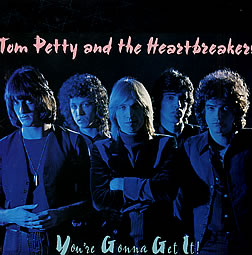
You're Gonna Get It! is the second studio album by the American rock band Tom Petty and the Heartbreakers, released on May 2, 1978, by Shelter Records. Originally, the album was to be titled Terminal Romance. Its design and art direction was handled by Josh Kosh. The album peaked at No. 23 on the Billboard Top LPs & Tapes chart in its release year, a higher position than its predecessor, Tom Petty and the Heartbreakers (1976).

Hey Now Hey (The Other Side of the Sky) is the nineteenth studio album by American singer-songwriter Aretha Franklin.

Used Songs 1973–1980 is a compilation of songs from Tom Waits's Asylum Records years.
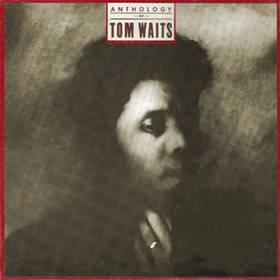
Anthology of Tom Waits is the first "best of" compilation of Tom Waits recordings, with tracks taken from his albums for Asylum Records.
"Romeo Is Bleeding" is a song written and performed by Tom Waits, and released on his 1978 album Blue Valentine. The lyrics make frequent use of Spanish, including phrases such as "Hey Pachuco!", "Dáme esa pistola, hombre!", "Hijo de la chingada madre!", and "Vamos a dormir, hombre". Waits also makes a reference to gangster movie-star James Cagney, previously mentioned in "Invitation to the Blues" on Small Change.

Jerry Lee Lewis is a studio album by American rock and roll pioneer Jerry Lee Lewis, released by Elektra Records in 1979.



















